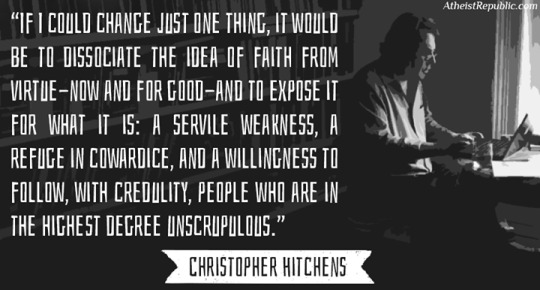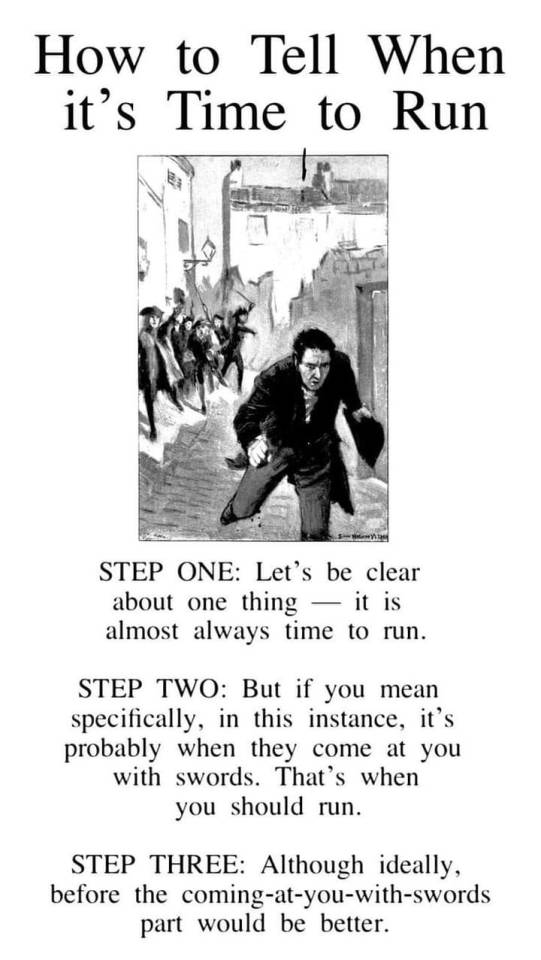#cowardice
Quote
Man has it all in his hands, and it all slips through his fingers from sheer cowardice.
Fyodor Dostoyevsky, Crime and Punishment
#philosophy#quotes#Fyodor Dostoyevsky#Crime and Punishment#choices#actions#cowardice#courage#humanity
1K notes
·
View notes
Text

Source
177 notes
·
View notes
Text
Man has it all in his hands, and it all slips through his fingers from sheer cowardice.
Fyodor Dostoevsky
#fyodor dostoevsky#dostoevksy#quotes#philosophy#wisdom#life#literature#writer#books#write#psychology#cowardice#religion#existentialist#existentialism
269 notes
·
View notes
Text
"I dare you to take me on. I dare you to show me your palms. I'm so bored of cowards who say they want (love) then they can't handle love."
- Björk
#björk#bjork#intentions#quotes#love quotes#life quotes#spilled ink#spilled truths#musicians#experience#cowardice#bravery#dare#double dare#triple dog dare#or the physical challenge?#healing is a process
34 notes
·
View notes
Text
Sonamy
Sonally
Sonadow
Shadamy
Ect
They’re all equalLY C̶̤̿Ő̶̦W̷͚͒A̵̼͘R̸̝͝D̴̦̒I̷̖̋Ć̶̫E̴̙͘
GIVE ME Ș̸͠O̵͖̽Ṋ̸͝A̷͚͋D̴̘͛A̸̜͒M̸̪͠Ă̷̪L̵̖̚Ĺ̸̞Y̸̛͎OR GIVE ME À̴̭Ś̵̱Ë̵͖X̴̫̉U̴̝̿A̶̬̾L̵͔͑I̵̖̐T̸̤͘Y̶̰̏
#sonic the hedgehog#sonic shitpost#sonic ships#cowardice#sally acorn#sonic#amy rose#shadow the hedgehog#sonadamally
23 notes
·
View notes
Text
youtube
#moshe farchi#jewish doctor#australia#antisemitism#frontline mental health conference#first responders#cowardice#sky news#sharri markson#boycott#Youtube
21 notes
·
View notes
Text

"If I could change just one thing, it would be to dissociate the idea of faith from virtue—now and for good—and to expose it for what it is: a servile weakness, a refuge in cowardice, and a willingness to follow, with credulity, people who are in the highest degree unscrupulous."
-- Christopher Hitchens
Elevating unjustified "faith" from cognitive flaw to false virtue is the backbone of both religion and ideology.
#Christopher Hitchens#faith#faith is not a virtue#cowardice#credulity#religion#religion is a mental illness
59 notes
·
View notes
Text



Anna Laughlin (Dorothy) and Arthur Hill (Cowardly Lion) in the 1902 ‘The Wizard of Oz‘ musical
“Every act of courage is the work of an unbalanced man. Animals, normal by definition, are always cowardly except when they know themselves to be stronger, which is cowardice itself.” - Emil Cioran, ‘Drawn and Quartered’ (1979) [p. 87]
#cioran#emil cioran#drawn and quartered#cowardice#wizard of oz#dorothy#cowardly lion#anna laughlin#arthur hill
30 notes
·
View notes
Text
On the topic of wizard character concepts, a slightly older idea of mine, stemming from the discussion of the various schools and what it might say about a wizard to consciously choose them. Specifically, the idea that people might think that abjuration wizards are cowards for clinging to the most protective aspects of magic.
Which, in my head, combined with the idea of tiefling virtue names, and a very traumatised tiefling who named themselves Craven, in the deep conviction that yes, they are a coward.
And, if you’re going to have a traumatised character, you go to Van Richten’s Guide to Ravenloft and give them the Haunted One background. And not just because it’s one of my favourites, but because, since we’re a wizard, as in a bookish nerd, there’s a pre-made harrowing event that traumatised the hell of us right there: “You opened an eldritch tome and saw things unfit for a sane mind. You burned the book, but its words and images are burned into your psyche.”
So. Our little baby tiefling wizard read a bad book, a bad book that fully scarred them for life and turned their hair literally white, and ever since then they’ve devoted their studies to the magic of protection, and renamed themselves in the full and sincere belief that they’re a coward. I am picturing a rail-thin hollow-eyed nerd literally hugging their spellbook for protection.
But why would a traumatised and self-professed coward go adventuring? Because they saw horrors, vast, incomprehensible horrors, and they know their pathetic magic right now wouldn’t stop a hair of it. If it can’t stop a goblin arrow, it sure as hell can’t stop an eldritch thing from beyond the stars. So they need to improve their magic, and the only way to improve defensive magic is to, well, defend. Plus. All their wards and libraries wouldn’t stop what they saw either. Sometimes the best defence is a good offence, or at the very least entails acquiring enough specific information to create targeted defence. Such as finding and preventing the access point from opening, for example.
I kind of want the book they read to be the work of a scholar afflicted by an allip. They didn’t get far enough into it to actually contract the allip’s curse and become one, but they came damn close. Hence why there was some actual physical transformation as a result. The hair-turns-white-with-shock thing is an old trope, but an enjoyable one, and I want it.
(Look, allips are one of my favourite creatures, they’re cool, shattered traumatised undead who discovered secrets man was not meant to know, and who are desperately trying to share that hideous knowledge to relieve themselves of its burden).
I think we’ll take Eldritch Adept somewhere down the line, for Armour of Shadows or possibly Devil’s Sight. And I’m flipflopping between Glasya and Levistus tiefling, because I think Armour of Agathys might also be a part of their heritage they cling to, but Invisibility would also be tempting for them. (I would love if a DM let my tiefling’s innate spells act like the ones from the updated races, as in I could have them be INT based and also cast them with spell slots. If that was the case, I feel like definitely Levistus tiefling).
So you have this patient, methodical, high-strung, twitchy, deeply traumatised scholar who has self-loathing embedded directly in their core, doggedly out here rattling and shuddering their way through the terror because there’s worse terrors waiting and they’ve got to be ready for them.
Yes, I have a type, why do you ask?
26 notes
·
View notes
Text

Bagley
* * * *
“You are not allowed to give up.”
February 17, 2024
ROBERT B. HUBBELL
Vladimir Putin killed his chief political opponent on Friday. Alexei Navalny, a Russian hero and patriot, is the latest in a long line of victims of Putin’s murderous regime. Navalny was in prison north of the Artic circle when he allegedly “died suddenly” on a “walk.” Most of Putin’s victims “fall out” of second-floor windows or die from exotic poisons or nerve agents. President Biden said,
Make no mistake: Putin is responsible for Navalny's death. What has happened to Navalny is yet more proof of Putin's brutality. No one should be fooled, not in Russia, not at home, not anywhere in the world.
Of Navalny, Biden said,
He was brave. He was principled. He was dedicated to building a Russia where the rule of law existed and where it applied to everybody.
Putin kills with impunity. Coincidentally, Donald Trump is currently urging the Supreme Court to grant him (and all other US presidents) the power to kill their political opponents with impunity. Even more coincidentally, Trump has not condemned Putin’s assassination of Navalny—leaving Trump alone among US and Western democratic leaders, all of whom condemned Putin for the death of Navalny.
The assassination of Navalny comes as the GOP is under the thrall of Putin. Trump and congressional Republicans are doing Putin’s work by refusing to provide supplemental funding for Ukraine. MAGA poster boy Tucker Carlson provided a platform last week for Putin to spread his lies about Russia’s history and territorial claims—including his claim that Ukraine is “not really a separate country.” Even Putin was derisive of Tucker Carlson’s pathetic interview. See Business Insider, Putin Says He Thought Tucker Carlson Would Ask Tougher Questions.
President Biden also condemned Congress for its inaction on Ukraine in his remarks on the assassination of Navalny. After his formal remarks, a reporter asked President Biden if there was anything the US could do to accelerate the delivery of aid to Ukraine. Biden responded,
No, but it’s about time [Congress] step[s] up, don’t you think? Instead of going on a two-week vacation.”
Two weeks, they’re walking away. Two weeks. What are they thinking? My God, this is bizarre, and it’s just reinforcing all of the concern and almost – I won’t say panic – but real concern about the United States being a reliable ally. This is outrageous.
The heroism of Navalny highlights the cowardice of House Republicans. Mike Johnson is damaging US foreign policy so he does not provoke the ire of Marjorie Taylor Greene. See op-ed by Eric Garcia in The Independent, Navalny’s death has shown Republican House Speaker Mike Johnson up as a coward.
Garcia explains that Mike Johnson did not spend the last two work days on the Senate bill granting aid to Ukraine but instead wasted time on the Mayorkas impeachment:
Johnson did [so] in the service of appeasing Representative Marjorie Taylor Greene, the right-wing conspiracy theorist and Trump ally from Georgia, who is also an ardent opponent of funding for Ukraine.
The fact [Johnson] refused to cross the person largely responsible for him being Speaker shows how unserious he is.
Marjorie Taylor Greene has pledged that if aid to Ukraine goes to the floor of the House, she will file a motion to vacate the chair of Johnson. This comes despite the fact that many in Johnson’s conference want to support Ukraine and most Democrats would vote to help pass a bill doing so.
In other words, Mike Johnson is willing to allow Ukraine to fall to Putin because he wants to remain in his job as Speaker of the House—under the thumb of Marjorie Taylor Greene. What a pathetic, cowardly existence.
Against Mike Johnson’s cowardice (emblematic of all congressional Republicans) is the heroism of Alexei Navalny. In anticipation of his own assassination, Navalny left these words to those who remained behind:
If they decided to kill me, then it means we are incredibly strong.
We need to utilize this power to not give up, to remember we are a huge power that is being oppressed . . . . We don’t realize how strong we actually are. The only thing necessary for the triumph of evil is for good people to do nothing, so don’t be inactive.
You’re not allowed to give up.
We do not need to make Alexei Navalny’s ultimate sacrifice to follow in his footsteps. We just need not to give up—even when the odds against us seem overwhelming. We can do that. We have been doing that.
Robert B. Hubbell Newsletter
#political cartoons#authoritarianism#Robert B. Hubbell#Robert B. Hubbell Newsletter#courage#Alexei Navalny#Putin#war in Ukraine#aid to ukraine#Mike Johnson#cowardice#Cowardly House Republicans
10 notes
·
View notes
Photo

Τους πόνους γαρ αγαθοί τολμώσι, δειλοί δ’ εισίν ουδέν ουδαμού.
- Euripides
The brave will dare the effort of war, cowards are nothing nowhere.
#euripides#greek#classical#quote#war#cowardice#courage#bravery#fighting#homeland#ukraine#russia#europe#female soldier#soldier#society#ukraine war
101 notes
·
View notes
Quote
Every one of my acts commits me as a man. Every one of my silences, every one of my cowardices reveals me as a man.
Frantz Fanon, Black Skin, White Masks
164 notes
·
View notes
Text

My new life rules. Feel like rincewind from discworld would agree.
285 notes
·
View notes
Note
I'd like to request your thoughts on what is considered 'cowardly'. In most of the books i've read (usually YA) characters who are shown begging for their life are 'cowards', which always seemed odd to me. Moreover, cowardice isn't considered a 'heroic' enough flaw for protagonists to struggle with most of the time, which i think is a shame. (1/2)
I remember reading a Portal fanfic called 'Blue Sky'(which is really excellent btw, its written better than many novels imo) one of the two protagonists has a choice between freedom or going back to help the other protagonist,and maybe dying. Reading that internal struggle as he first tries to rationalize his decision to leave her behind, making excuses for why he 'deserves' freedom in his head, only to realize that no, he HAS to go back was just so gripping to me. Cowardice is underrated. (2/2)
--
So a few things to unpick for my thoughts on this. Sorry for the length! For context, this is discussing the Cowardice Callout trope.
1 - Usually YA.
YA as a genre/marketing label has certain rules, or at least strong guidelines. One is that a YA book tends to have (in film equivalent terms) a rating of 12/15. So it can get scary and do some non-gory violence and have some sex and obscenity, but it's not like an 18 for the most part. The violence/horror is unlikely to be super graphic. This isn't a criticism of YA or to suggest that YA doesn't deal with tough things, because it absolutely does, but it does so in a different way and some content just isn't generally considered suitable for YA publication. Books with teenagers can certainly go darker. But a book with a teenager in is not the same as a YA book. Anyway.
Another is that YA tends to have a 'Happy for Now' ending. It doesn't have to be Disney happy. But...generally there's optimism. Our YA protagonist might be hurt along the way, but ultimately they succeed.
The result of this is that in most YA novels you're probably not going to dig too deep into the terror of letting something awful happen out of fear, not because YA doesn't deal with fear (it does, all the time! the fear of growing up, of missing out, of not being loved for who you are, never mind actual physical threat) but because YA thematically is more likely to focus on being brave. On overcoming the fear. If the protagonist succumbs to their flaw of fear then that's a negative character arc, and, while interesting, not a happy or happy for now ending.
There are plenty of books and media that deal with cowardice in a nuanced way. It's just much less likely to be YA. See, the Loveable Coward or Cowardly Lion trope and their examples which illustrate when cowardice is a flaw, even in heroes/protagonist's.
2 - Story stakes, begging for your life and likeable characters oh my
Characters who are shown begging for their lives and who are presented as being cowards (in the insult sense of 'coward!' rather than a character who is simply scared) are done so in the context of story stakes.
They're not cowards because they want to live, which is perfectly understandable, but because of who or what they are willing to screw over for the sake of that survival. See the Dirty Coward trope. It's normally people they love or people who are weaker than them who suffer for the cowardice. That's why they're called out. They're not being judged for being scared. Everyone gets scared. They're being judged for the way they allow that fear to overrule everything else, to the point of cruelty or unkindness. Cowardice isn't a standalone quality. It ties into other behaviours.
In terms of story structure, we want our protagonists to change over the course of the narrative for the most part. If a character is a coward at the start and then they just continue being a coward without change or consequence then that's not an interesting story. There's no tension there.
In the example you gave, the interesting bit is the tension between being scared and ultimately going back.
Would it be the worse story choice if they had given into their fear? Not necessarily. Both have juicy options, and a sacrifice to provide plot tension. But it would be a different story and we would be unlikely to like the protagonist as much, unless this took place near the beginning or middle of the story and they ultimately overcame their flaw later.
We live in a world where a lot of people want to like characters, and judge characters based on whether they liked them or not. The backlash that morally dubious characters get when they dare to be morally dubious in a slightly less palatable way proves that!
Again, writing is an industry. People pick what books get published. People are more likely to pick the book with the likeable protagonist, because it is an easier sell.
I'm not saying it's right, but I think we live in a time where there is a focus on easily marketable high-concept stories with characters who are easy to love and root for. Cowardice is a trait a lot of people don't root for, because none of us like to be reminded of the very real and very awful things we might all do when scared. It's disquieting. History is full of people who have looked the other way out of fear and the consequences were damning. We view those people as the villains. We understand fear as a motivation for terrible things. Our stories are often there to inspire us to do better than that, hence, bravery.
3 - Final notes
Lots of stories deal with fear. The reluctant hero is often scared to set out on their journey, the internal conflict a protagonist has is often rooted in their own self-doubt and fear of the consequences. But they set out.
Cowardice takes this fear to another level, making it a defining character trait. On a simple story level, if your protagonist is a coward it is harder to get the story going because if you're scared and you don't overcome that fear in some way then plot doesn't happen. People who are scared don't go out of their way to go into dangerous exciting situations. They sit at home and wait for someone braver to deal with the problem. They don't rock the boat.
Is this a perfectly natural response to have? Sure. Does it make for an interesting story? Not so much.
#on writing#writing talk#cowardice#idk#rambling thoughts going to bed#fear is a key theme in the god key lol
130 notes
·
View notes
Text
The IOF show mental signs of cowards afforded easy targets on a power-tripping murder spree while the US holds down their victims for them.
#palestine#palestinians#gaza#genocide#israeli apartheid#israeli occupation#free palestine#free gaza#right wing extremism#fascism#racism#childrens holocaust#war crimes#justice#idf terrorists#iof terrorism#us weapons#us complicity#mass murder#netanyahu the madman#israeli psychosis#annexation#annihilation#cowardice#weak leaders
8 notes
·
View notes
Text
“As I stared at the apparition, I saw that the cowl had drawn back, leaving the doctor’s face exposed. Yes, it was hideous and snarling; yes, the teeth were sharp and the eyes were like black coins, but—with the hood off—it was just a man’s face, after all. A stupid, obsessive man, who, to make himself feel important, had liked to dress in eerie robes. Who had sought answers to things he shouldn’t know, but had been too scared to look himself. Who had used others—both in life, and now in death. Was his voice hypnotic? Perhaps to some, but not to me.
I’d had enough of him.”
Lucy Carlyle, Jonathan Stroud, "The Whispering Skull"
#jonathan stroud#the whispering skull#lockwood and co#edmund bickerstaff#cowardice#bone glass#lucy carlyle
13 notes
·
View notes